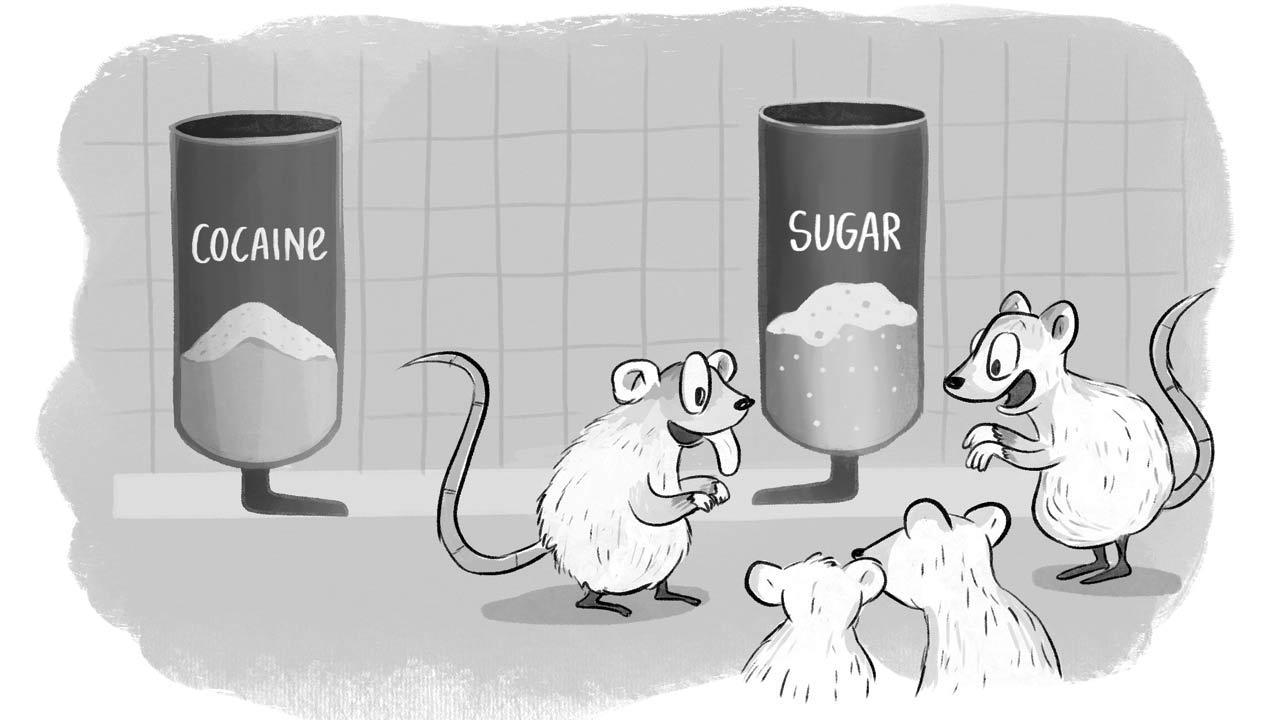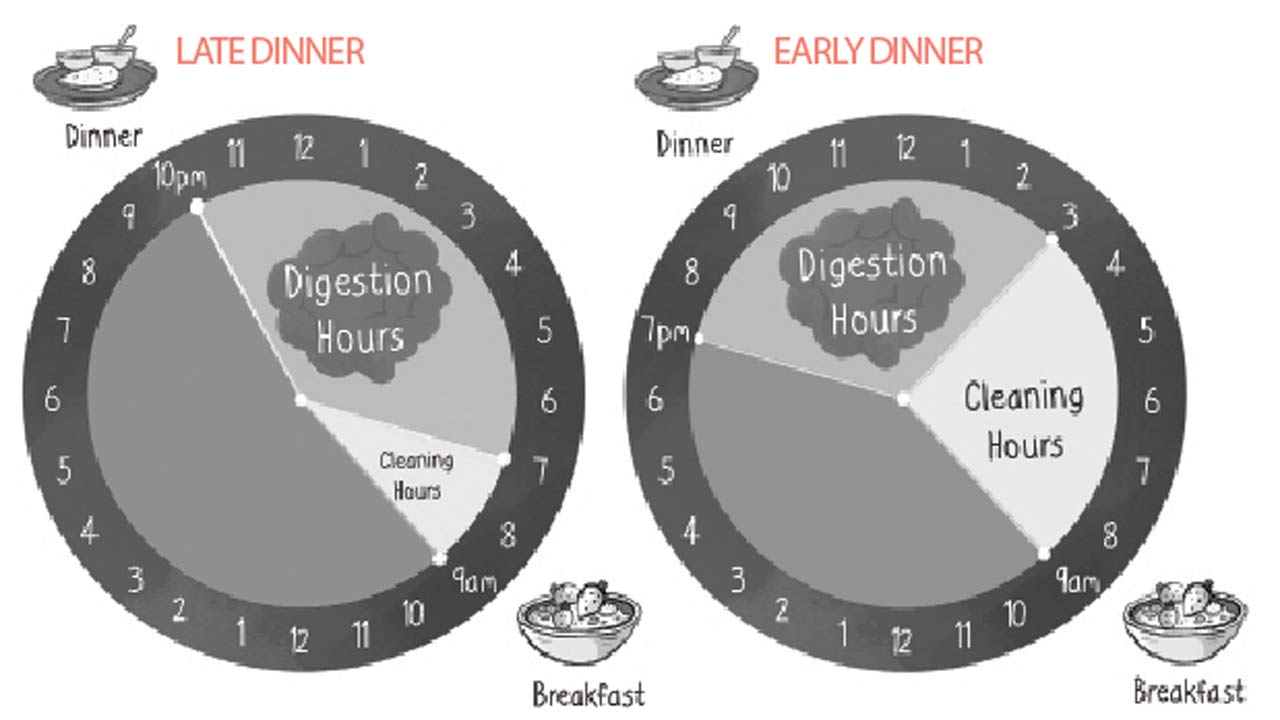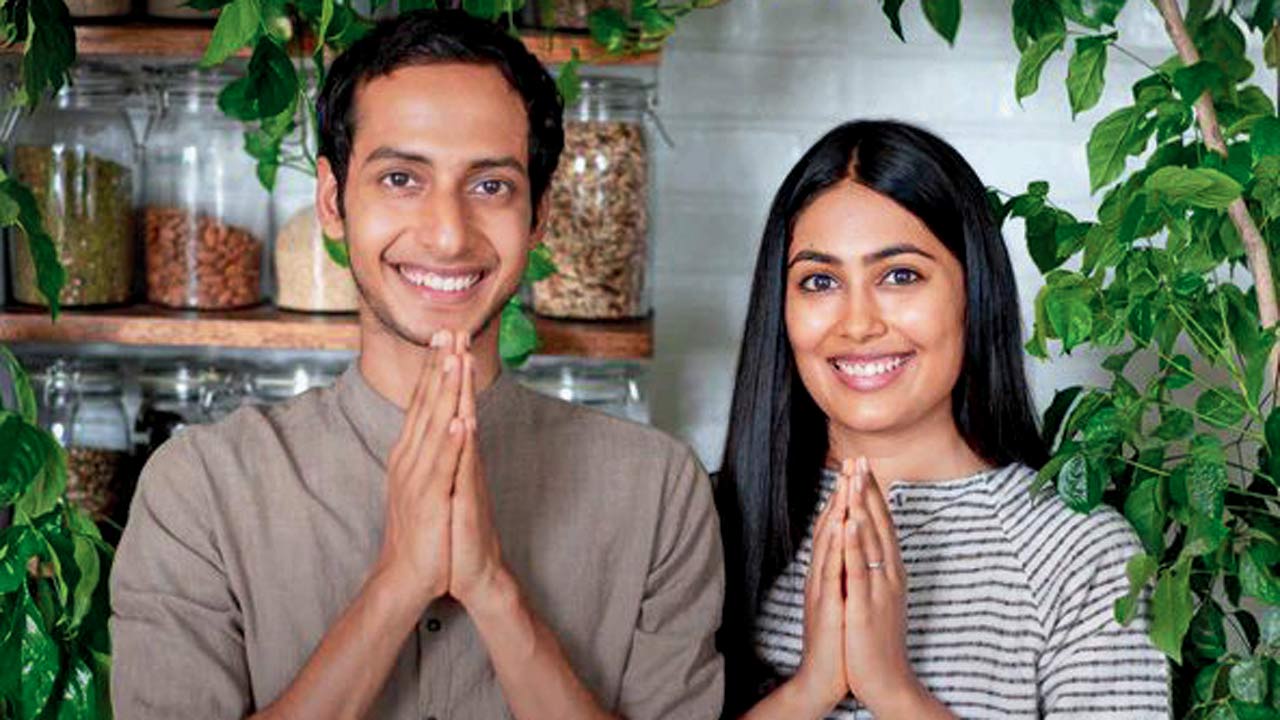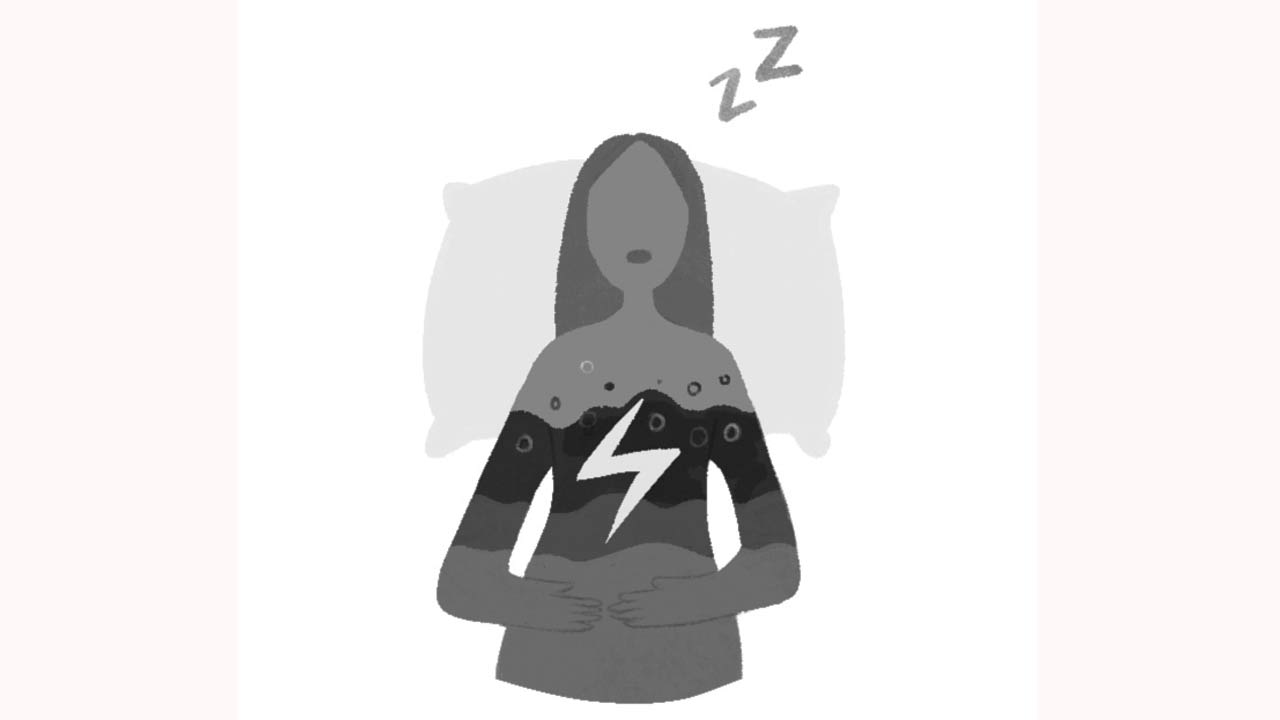It’s five months to New Year’s, and here’s your chance to get a headstart on a healthier, new you. This extract from a new book on Satvic living gives you three simple ways to get started

A 2007 study in France showed just how addictive sugar can be, with 94 per cent rats choosing sugar water over cocaine
There was a fascinating study conducted in 2007 by researchers at the University of Bordeaux. In this experiment, forty-three rats were placed in cages with two levers. One lever, when pressed by the rats, gave them an intravenous hit of cocaine, making them feel an instant ‘high’. The other lever, when pressed by the rats, gave them a sip of sugar water.
ADVERTISEMENT
The researchers allowed the rats to do a couple of sample tries, so that the rats could understand each lever’s offerings. Then, the real test commenced.
What do you think the rats would have preferred? Believe it or not, 94 per cent of the rats preferred sugar water over cocaine! Interestingly, even when researchers increased the cocaine dosage, the rats still preferred the sugar water.
What’s the science behind this? When we consume sugar, the amount of dopamine released in the brain increases, just like the response triggered when we take an addictive drug. Over time, with repeated exposure, our brain becomes dependent on sugary foods to get this dopamine rush. What’s surprising is that researchers suggest the brain finds the rewards from sugar even ‘more rewarding and attractive’ than those from cocaine.
 Eating an early dinner is one of the simplest but most effective ways of improving overall health and even reversing lifestyle diseases, as it gives your body the time and opportunity to cleanse itself
Eating an early dinner is one of the simplest but most effective ways of improving overall health and even reversing lifestyle diseases, as it gives your body the time and opportunity to cleanse itself
Actually, we don’t even need stacks of research papers to understand how addictive sugar is. We can see it in our everyday life. Have you ever experienced how difficult it is to stop after just one sugary treat, like a cookie? You intend to eat just one, but before you know it, you’ve consumed the whole pack! Soon you begin craving the sweet even after your meals and throughout the day.
Well, you must know that this isn’t a mere temptation— it’s an addiction. Yes, ‘addiction’ is a strong word, but research, as well as our personal experience, shows us exactly that.
Beyond its addictive nature, sugar has numerous other downsides. Strong evidence indicates that excess sugar in our diet is stored as fat in our body, causing excessive weight gain. Short-term studies also link high sugar intake to elevated blood sugar levels, diabetes, high triglycerides, increased blood pressure and heart disease. It’s no wonder some experts have labelled refined sugar a ‘slow white poison’.
 Subah and Harshvardhan Saraf
Subah and Harshvardhan Saraf
Now, having understood the addictive and harmful nature of sugar, there’s no denying that most of us love desserts! It’s hard to imagine life without them. The good news is that we don’t have to give them up. At our Satvic headquarters, we love preparing desserts. We frequently bake cakes to mark celebrations with our team, prepare Indian mithais like kheer and rabdi for festivals and occasionally indulge in scrumptious desserts to end our meals. The only difference is that we don’t use refined white sugar. Instead, we prepare or find treats made from wholesome sweeteners. Yes, there are some excellent alternatives to white sugar. But before sharing the best ones, let’s do a short activity.
The most sustainable way to actually eliminate refined sugar from your life is to replace, and not remove. There are many replacements of refined sugar. Let’s categorise them from the worst to the best.
The worst are the highly refined sweeteners. These include brown sugar (essentially white sugar coated with brown molasses), khaand, mishri and commercial honey. Our recommendation would be to remove these entirely from your diet, or at least, reduce their intake as much as possible.
 The hours we sleep is when the body recharges, but this crucial process can be hampered if we overload the brain with information right before bedtime
The hours we sleep is when the body recharges, but this crucial process can be hampered if we overload the brain with information right before bedtime
Better are minimally refined sweeteners. This includes jaggery, which is commonly found in India. You can find it in block, syrup or powder form. Aim to purchase chemical-free jaggery from an authentic brand, keeping in mind that the darker the jaggery, the purer it tends to be. While jaggery is less refined than white sugar, it is still a refined food, and hence, you should practise restraint while consuming it. The best are unrefined sweeteners. These include dates, figs and raisins. And let’s not forget fresh fruits like bananas, mangoes, oranges, pineapples, berries, melons and more. These are Nature’s candies and are the most wholesome of all.
• • •
I grew up in a Jain family. Jainism is a spiritual path originating in ancient India that follows the principles of non-violence, compassion and the pursuit of spiritual purity. I lived in a joint family with my parents, four taijis (aunts) and four taujis (uncles), their children, my grandmother and grandfather. At one point, there were twenty-one of us living in one home!
Though I didn’t understand most of the concepts of Jainism back then, I used to observe all the elders in the house practising certain rituals.
One of their rituals was to eat their dinner before sunset (which was around 6 pm) and only have their next meal after sunrise the next day. My grandparents were especially particular about this. After coming back from school, when I used to be having my snack at 5 pm, they used to be getting ready to eat their dinner. To be honest, I found this quite odd. I always wondered how they didn’t feel hungry at night.
Whenever I used to ask them why they ate their dinner so early, they simply said, ‘Because we’ve always done it this way. Our elders did it, so we do it.’ As you can imagine, I never felt inspired to try it myself.
Fast forward to years later, I went to a health institute in Florida. There, I noticed something similar happening. This institute was essentially a healing and education centre where people would typically come and spend two to three weeks. By following the guidelines shared, people were able to reverse even serious health problems. While I was there, I observed that there was one key practice followed by the institute every single day. This was the practice of having an early dinner. Every day dinner was served by 6 pm and cleared away by 7.30 pm.
For me, this was a revelation! I realised that what you eat is as important as when you eat it. That’s when I also realised that what my grandparents had been doing as an age-old practice all this while was actually grounded in deep wisdom.
From then onwards, I inculcated the habit of eating early dinners in my own life, and saw massive improvements in my energy levels and overall health.
While eating the last meal by 6 pm is ideally recommended, feedback from many members in our Satvic community (those who diligently follow this lifestyle) and my own observations made me realise that this time isn’t practical for most. Hence, we suggest 7 pm as a more feasible option.
• • •
When we scroll through Instagram, Facebook or any social media, our minds get bombarded with content. Here’s something interesting that Jim Kwik, the author of Limitless shares: we now consume as much data in a day as an average person in the fifteenth century would have absorbed in an entire lifetime!
What’s worse is that much of this data exposure happens right before we sleep. In other words, we overload our minds with an unrestricted bombardment of information when it should really be winding down for rest. What happens as a result? Afterwards, our body may sleep, but our mind remains active.
Have you ever experienced that the last thought you had before sleeping continues to generate random thoughts throughout the night? For example, watching a late-night horror movie often leads to a nightmarish dream, or if you happen to stalk someone on social media just before bed, their presence may find its way into your dreams. I must confess that I’ve encountered this phenomenon frequently, as you may recall from my rather bizarre dream in the previous chapter. But why does this happen? Because the last visual or audio input we expose our minds to before sleep leaves an impression that we carry forward with us to our sleep.
Regrettably, many of us go to sleep after watching world news or dramatic TV shows that showcase chaos, and families and homes breaking apart. What we don’t realize is that we take this emotional residue (the lust, greed, jealousy, hatred, pain and fear) with us into our sleep. This not only keeps our minds on high alert, preventing us from sinking into deep sleep, but also makes that negativity seep into our subconscious mind.
In essence, how deeply you sleep at night depends largely on how you spend the last one hour before sleep. Now that we’ve discussed how gadgets get in the way of achieving deep sleep, let’s look at what we can do instead in that last one hour before sleep.
Creating a Wind-Down Routine: What really is a wind-down routine? We can understand it using a simple analogy: just as we remove our belt, coat and jewellery before sleeping, we also need to remove the inner chatter and the buzzing thoughts from our mind before bedtime. In other words, we need to quieten the mind before we sleep. This process of quieting the mind is what we are referring to as ‘a wind-down routine’.
In order to do this, the first thing we need to do is to disconnect from technology at least one hour before going to sleep. We need to set a designated cut-off time— whether it’s 8 pm or 9 pm—after which we put away our gadgets, and don’t look at any more screens.
How do we practically implement this? Do we just get off our laptop, phone and television and then just sit there looking at the wall? Well, that’s a sure-fire way to get internet jitters and find yourself on your device a few minutes later. If we really want to be off technology before bed, it has to be replaced with something we enjoy equally or even more than being on our device. Simultaneously, this should be an activity that brings us peace, pacifying the mind rather than stimulating it.
Here are three examples of low-stimulation activities that you can replace scrolling/watching/working with (you may experiment and find what works best for you):
Reading a book: You could pick up a physical book on a subject you wish to learn more about. Reading allows you to enjoy a great story, inspiration or education without overwhelming your brain. Alternatively, you could even journal. This involves putting pen to paper and expressing your thoughts, feelings and experiences from the day. It’s a mindful activity that allows you to unload the day’s mental baggage before heading into a restful night’s sleep.
Engaging in a recreational hobby: This could involve anything that you have a natural interest in, whether it’s knitting, crocheting, painting or playing an instrument. You could choose a hobby that you’ve been wanting to start but haven’t found the time to.
Hot foot baths: To take a hot foot bath, fill a bucket with comfortably warm water and soak your feet for twenty minutes. As you allow yourself those uninterrupted twenty minutes, you experience the absence of stimulation, signalling to your brain that it’s time to wind down. Additionally, this practice improves blood circulation and immediately helps you feel more relaxed.
Excerpted with permission from The Satvic Revolution by Subah Saraf and Harshvardhan Saraf, Penguin Random House India
 Subscribe today by clicking the link and stay updated with the latest news!" Click here!
Subscribe today by clicking the link and stay updated with the latest news!" Click here!







